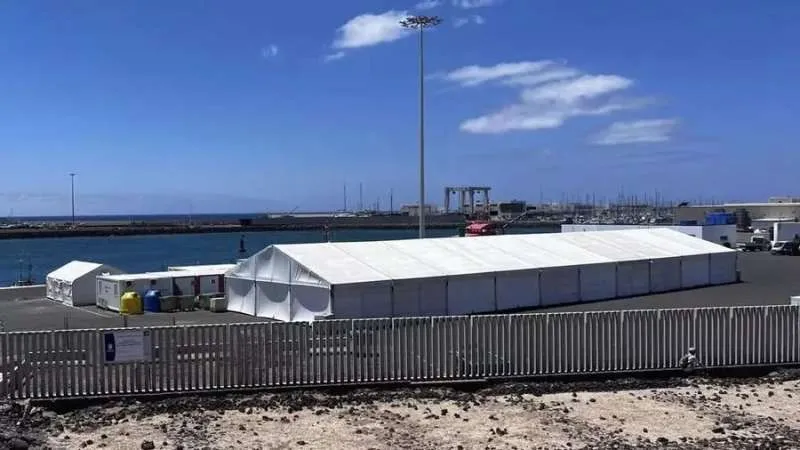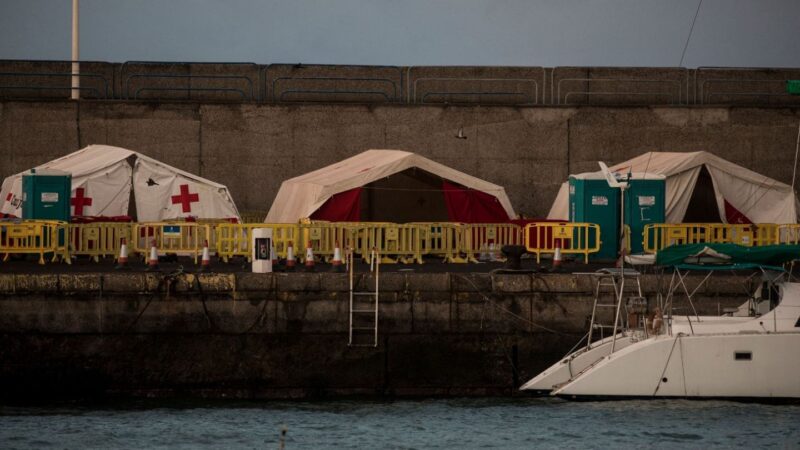Faced with a shortage of buildings to house migrant minors, the Canary Islands government plans to install tents at ports on Tenerife, Lanzarote, Fuerteventura, and El Hierro. This initiative was announced today by Social Welfare Minister Candelaria Delgado following the Canary Islands Immigration Forum meeting.
Currently, over 5,600 migrant minors are housed in more than 80 facilities across the islands. The regional government anticipates this number could rise to 16,000 minors in the coming months, but space is insufficient. Efforts are ongoing to pass a decree law to facilitate distributing these minors across other regions of Spain.
Immediate Measures and Future Plans
The tents in Lanzarote are nearly complete, while those on the other islands are expected to be ready within two to three weeks. Delgado noted that the highest pressure from incoming migrants is expected from September onwards.
“This is not just about infrastructure but also about having the necessary human resources to care for unaccompanied minors,” Delgado emphasized. The tents are intended as a temporary measure, housing the minors for five to six days to allow for the reorganization and adaptation of existing facilities, which are expected to be “overcrowded.”
Tents are being installed at ports in the Canary Islands to accommodate migrant minors.

Migration on the Canary Islands Report
Additional Requests and Coordination
Delgado reiterated the request for the state to provide unused Ministry of Defence installations and to authorize separate areas within adult migrant centers for minors.
During the Immigration Forum meeting, the creation of a crisis committee for emergency situations was agreed upon, along with forming a permanent commission with third-sector entities to ensure real-time information on accommodation and care capacities.
Challenges Ahead
The situation remains “complicated and unsustainable,” according to Delgado, as finding resources and facilities with the necessary security and care standards continues to be a significant challenge. The government aims to address these immediate needs while seeking longer-term solutions through national support and inter-regional cooperation.

